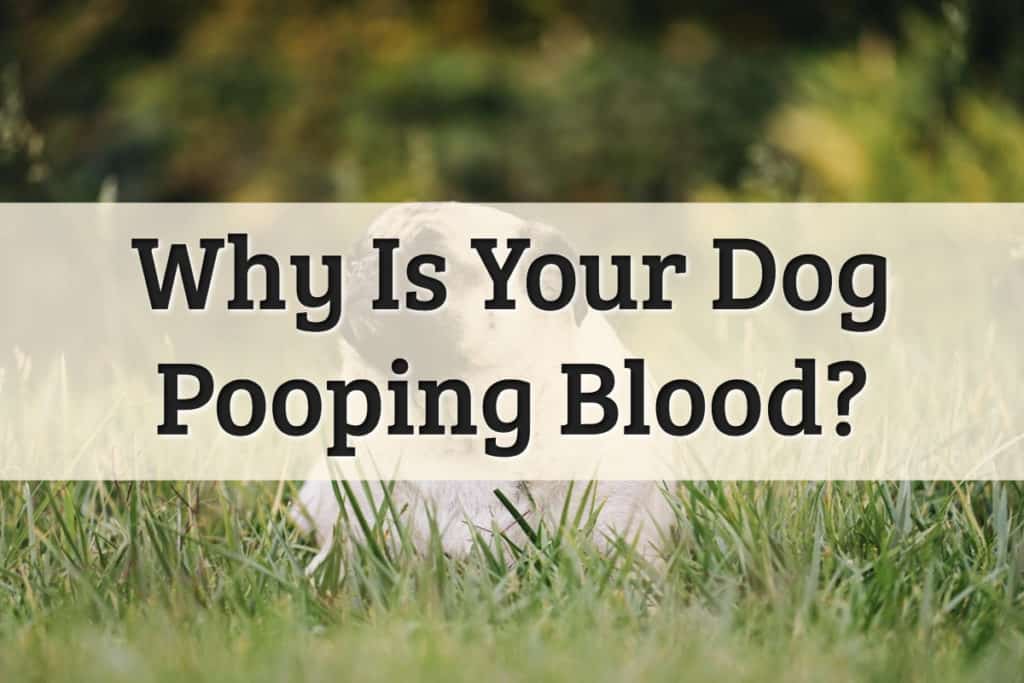Are you concerned about your dog’s health? If so, you’ll want to read this article about bloody diarrhea in dogs.
Discover the common causes of this condition and learn how to recognize the symptoms of hematochezia.
We’ll talk about how to identify bloody diarrhea in dogs and discuss treatment options.
Plus, we’ll share tips on how to prevent bloody diarrhea in your furry companion.
Don’t miss out on this important information!

Common Cause of Bloody Diarrhea in Dogs
You may wonder what could cause your dog’s bloody diarrhea. There are several common causes for this condition in dogs.
One of the most prevalent causes is a condition called hemorrhagic gastroenteritis (HGE). HGE is a severe intestinal infection that causes inflammation and bleeding in the digestive tract.
Dogs can get bloody diarrhea from eating harmful things, having parasites, or taking irritating medications.
Bloody diarrhea can sometimes show more serious conditions like tumors or inflammatory bowel disease..
Consult your vet to find out what’s causing your dog’s bloody diarrhea and get the right treatment..
Recognizing the Symptoms of Hematochezia
You should look out for signs and behaviors showing hematochezia in your dog..
Hematochezia refers to bright red blood in your dog’s stool. If your dog has bloody diarrhea, it’s crucial to pay attention to the color and consistency of the stool.
The major symptom of hematochezia is blood in the dog’s stool, which can range from streaks or spots to a completely red stool. You may notice your dog straining or having difficulty defecating.
It’s also important to keep an eye out for any other accompanying symptoms, such as vomiting or abdominal pain. If you notice any of these symptoms, make sure to see your vet promptly to figure out why there’s bloody diarrhea and get the proper treatment.
Diagnostic Tests for Bloody Diarrhea in Dogs
Fortunately, veterinarians have several diagnostic tests available to determine the cause of bloody diarrhea in dogs, so that they can give appropriate treatment.
When you take your dog to the vet, they will do a detailed physical exam to check for signs of dehydration or stomach pain.
They may recommend a complete blood count (CBC) to assess the overall health of your dog and look for any signs of infection or inflammation.
A fecal examination can help identify parasites or bacteria that may cause the bloody diarrhea.
Your vet may recommend imaging tests like X-rays or ultrasounds to examine the digestive system and check for any blockages or issues..
Sometimes, a biopsy of the intestinal tissue may be necessary to determine the underlying cause.
Treatment Options for Dogs With Hematochezia
Talk to your vet about the different treatments for dogs with hematochezia..
The treatment for hematochezia will depend on the underlying cause of the condition. Sometimes, they may recommend dietary changes to help ease the symptoms. Your veterinarian may suggest a bland diet or a prescription diet that’s easily digestible.
They may also prescribe medications to address specific issues, such as inflammation or infection. In cases there’s an infection present, antibiotics may be necessary. Certain medications may control bleeding or to promote healing of the gastrointestinal tract.
To ensure the best outcome for your dog, follow your vet’s instructions and complete the treatment.
Preventing Bloody Diarrhea in Canine Companions
Make sure you keep your dog’s diet consistent and provide regular veterinary care to prevent bloody diarrhea in your canine companion.
A consistent diet is crucial for your dog’s digestive health. Changing food suddenly can upset the stomach, causing diarrhea and possibly blood on the stool. Stick to a high-quality, balanced diet that suits your dog’s specific needs.
Regular veterinary care is essential for preventing bloody diarrhea. The vet can do routine check-ups, give vaccinations, and test for health issues that may cause bloody diarrhea. They can offer advice on preventing parasites and suggest dietary supplements for your dog’s gut health.

Conclusion
So, if you notice your dog experiencing bloody diarrhea, it’s essential to seek veterinary attention promptly. Identifying the underlying cause through diagnostic tests is crucial for effective treatment.
With the right treatment and care, your furry companion can recover from hematochezia. Keep your dog healthy and avoid bloody diarrhea by eating right, staying active, and visiting the vet.
Keep your furry friend happy and healthy!
